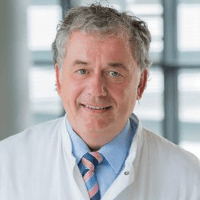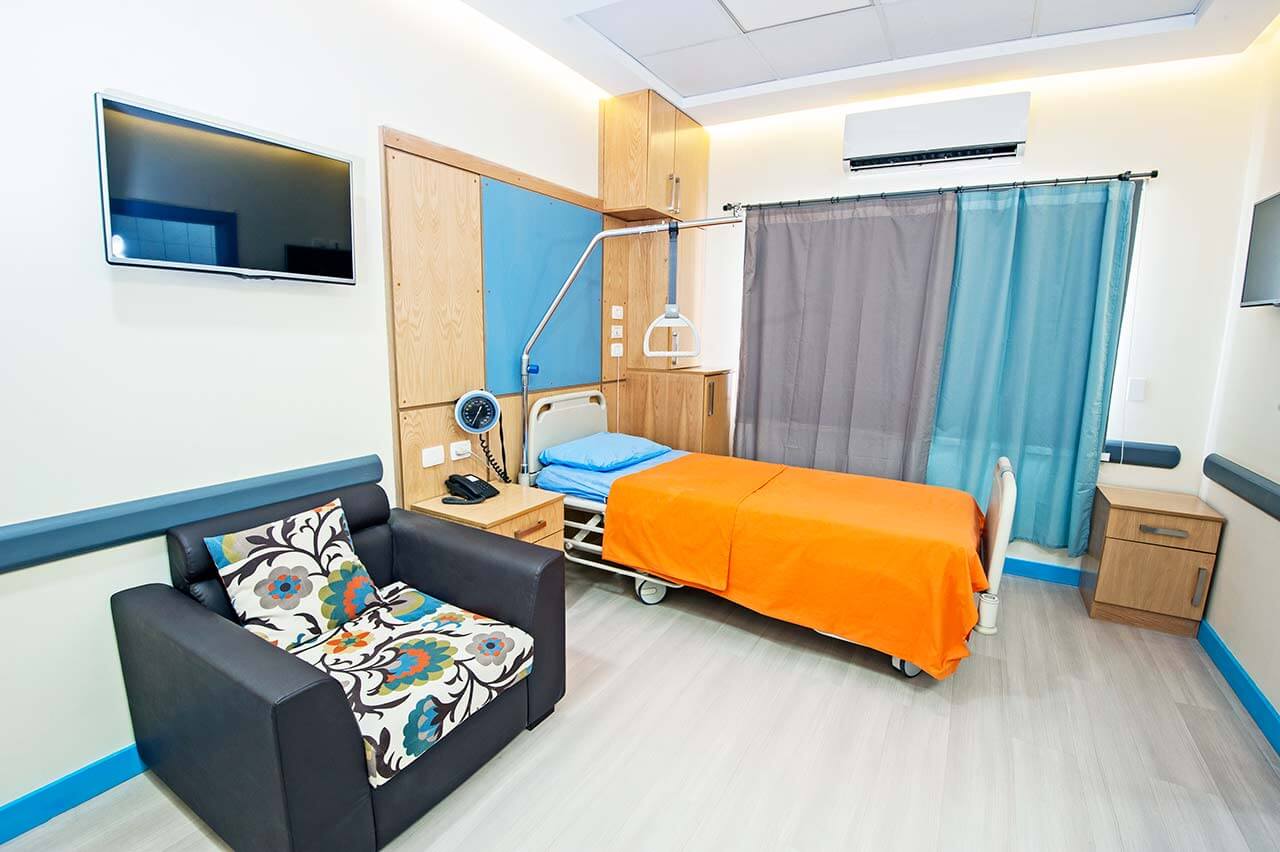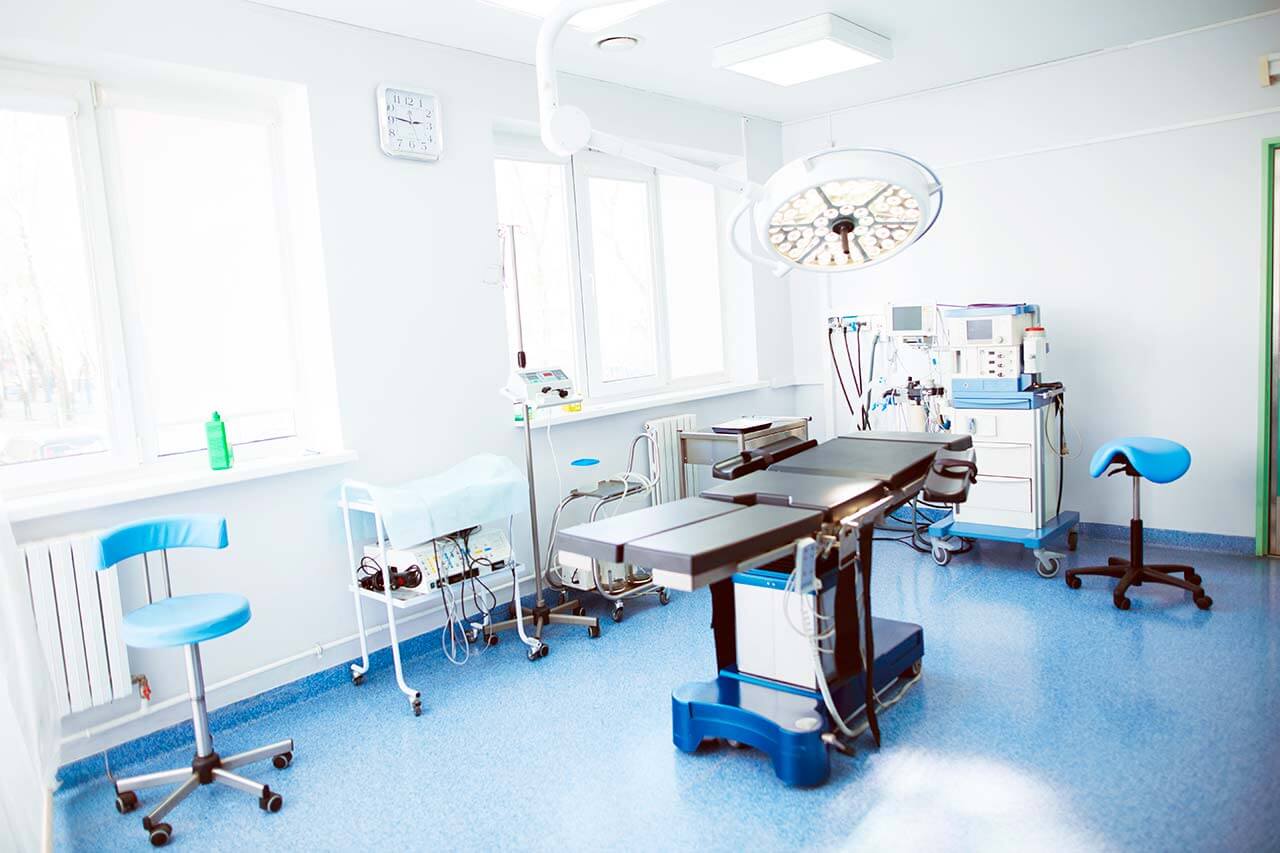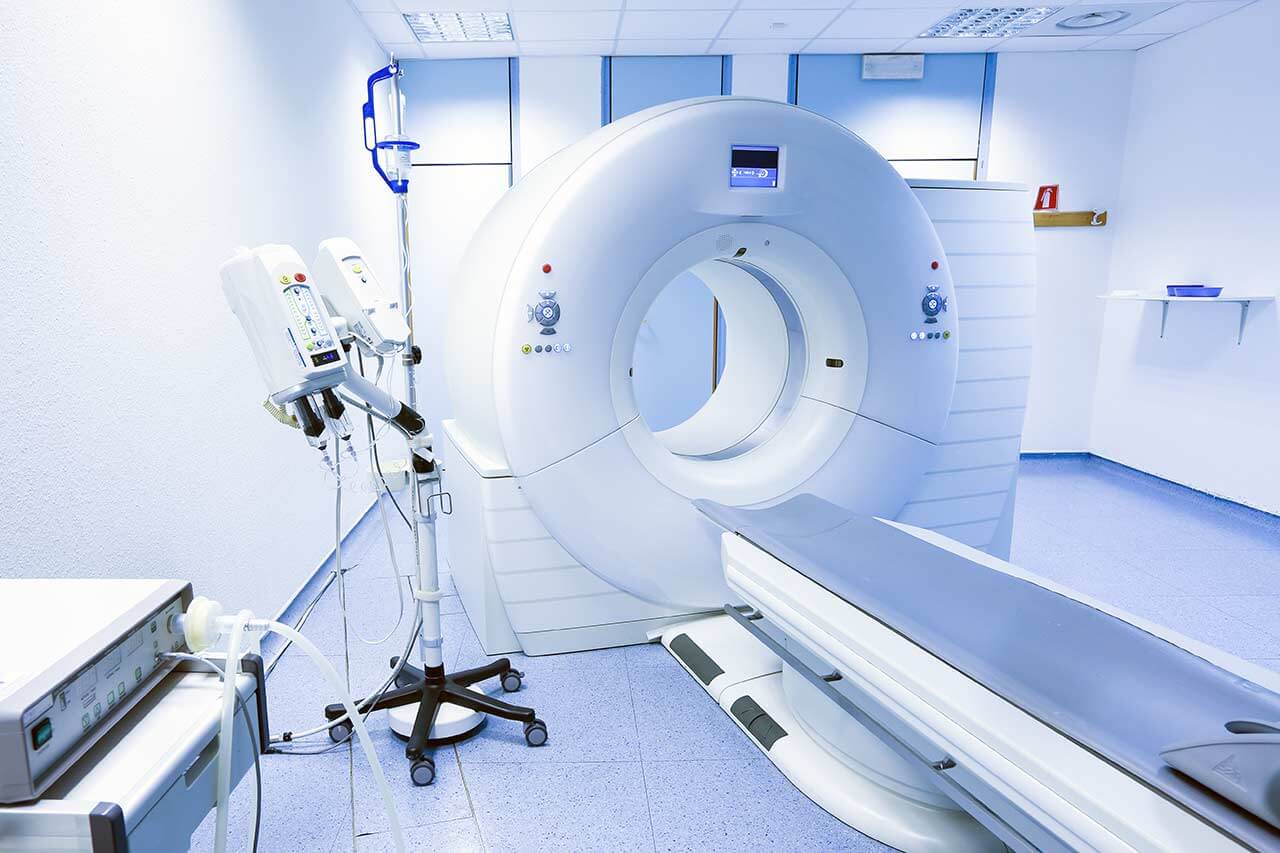
The program includes:
- Initial presentation in the clinic
- clinical history taking
- review of medical records
- physical examination
- laboratory tests:
- complete blood count
- biochemical analysis of blood
- thyroid function test (TSH-basal, fT3, fT4)
- mineral metabolism analysis (Na, K, Ca, Mg)
- lipid metabolism (HDL/LDL, cholesterol, triglycerides,
Lip(a), homocysteine) - iron content (ferritin, iron)
- blood coagulation analysis (aPTT, PT, INR)
- metabolic status (uric acid, total glucose, HbA1c)
- inflammatory parameters (CRP, ESR)
- cardiovascular disease risk markers
- vascular system assessment
- lung function test (Spirometry)
- resting and exercise ECG
- vessel elasticity measurement
- holter monitoring (24h)
- body fat and water examination
- color doppler echocardiography
- color doppler sonography of cerebral vessels
- cardiac catheterization
- preparation according to preoperative standard
- coronary bypass surgery (CABG) up to 2 wassels
- symptomatic treatment
- control examinations
- the cost of essential medicines and materials
- nursing services
- full hospital accommodation
- explanation of future recommendations
Required documents
- Medical records
- ECG (if available)
- Echocardiography (if available)
- Coronary angiography (if available)
Service
You may also book:
 BookingHealth Price from:
BookingHealth Price from:
About the department
The Department of Vascular and Thoracic Surgery at the Municipal Hospital Karlsruhe performs all modern surgical interventions to treat diseases of the vascular system and organs of the respiratory system. In vascular surgery, special attention is paid to the treatment of atherosclerosis, carotid stenosis, deep vein thrombosis, varicose veins, abdominal and thoracic aortic aneurysms, acute and chronic aortic occlusions, diabetic foot syndrome and other pathologies. The department's team of thoracic surgeons demonstrates excellent results in the surgical treatment of diseases of the lungs and mediastinum, including lung cancer and lung metastases. The department has 30 beds for the hospitalization of its patients, including additional beds in the Intensive Care Unit. The department's doctors rarely resort to open interventions, instead preferring sparing endovascular methods, video-assisted thoracoscopic surgery and laser surgical techniques. As a result, the department's patients receive high-quality medical care that meets modern international standards, while doctors always take into account the individual needs and wishes of their patients. The department is headed by Prof. Dr. med. Martin Storck.
In vascular surgery, patients are offered all modern endovascular interventions, while open surgeries are performed only in the most complex clinical cases. The priority clinical focuses of the department's work include endovascular treatment of abdominal and thoracic aneurysms, multimodal therapy for obliterating endarteritis, shunting, endovenous surgery for varicose veins, and operations on the carotid arteries. Doctors have vast clinical experience in the surgical treatment of aortic diseases, as they perform about 70 operations for aortic aneurysms annually. In close cooperation with the Department of Neurology and the Stroke Unit, the department's surgeons provide effective medical care to patients with pathologies of the carotid arteries. In addition, the department is a certified Competence Center for Chronic Wounds (Wundkompetenznetz Mittlerer Oberrhein). The therapeutic options also include conservative and surgical treatment of venous diseases, particularly varicose veins, acute thrombosis and venous ulcers.
The specialists in the field of thoracic surgery deal with the treatment of lung cancer, pleural and thoracic wall tumors, and lung metastases. After a comprehensive examination, a patient's clinical case is considered at a regular interdisciplinary tumor board. The treatment is carried out in cooperation with the experts from the Cancer Center Karlsruhe, the Department of Diagnostic and Interventional Radiology, and the Department of Nuclear Medicine. An interdisciplinary collaboration contributes to the department's opportunities to offer its patients innovative treatment methods. These include radiofrequency ablation, transarterial chemoembolization and selective internal radiation therapy.
The therapeutic options in thoracic surgery include not only cancer treatment. The department's specialists also treat pneumothorax (video-assisted thoracoscopic surgery) and chronic pleurisy (placement of the PleurX drainage system). In addition, the department's doctors specialize in bronchoscopy (in cooperation with the Department of Pulmonology) and open lung resection, including laser resection.
The department's range of medical services includes:
- Vascular surgery
- Surgical treatment of arterial diseases
- Surgical procedures and interventional procedures on the carotid arteries
- Surgical interventions for diseases of the supra-aortic arteries
- Surgical interventions for vascular diseases of the upper limbs: Raynaud's syndrome and aneurysms
- Endovascular and open interventions for thoracic and abdominal aortic aneurysms
- Dissection of the thoracic and abdominal aorta
- Surgical interventions for diseases of the arteries of the abdominal cavity
- Surgical interventions for atherosclerotic lesions of the vessels of the pelvis, thigh and lower leg
- Shunting of peripheral arteries
- Emergency care for shunt occlusions and peripheral arterial embolism
- Surgical interventions for vascular injuries, including pseudoaneurysms
- Treatment of diabetic foot syndrome (in collaboration with endocrinologists)
- Septic vascular surgery, for example, for infection of implants or other types of infectious lesions
- Surgical interventions for leg ulcers
- Surgical treatment of venous diseases
- Treatment of varicose veins: classical procedures, foam sclerotherapy, mini-phlebectomy, and radiofrequency ablation
- Treatment of venous ulcers: conditioning and a sieve graft
- Interventional / combined endovascular therapy for acute venous thrombosis
- Surgical treatment of arterial diseases
- Thoracic surgery
- Surgical treatment of lung and mediastinal diseases
- Standard resection interventions, including bronchoplasty procedures
- Video-assisted thoracoscopic surgery
- Drainage for pulmonary empyema (under CT guidance, if required)
- Treatment of pneumothorax (drainage or video-assisted thoracoscopic surgery)
- Treatment of pleurisy (PleurX system and talc pleurodesis)
- Surgical treatment of lung and mediastinal diseases
- Other medical services
Curriculum vitae
Martin Storck is a Vascular Surgeon and Professor at the University of Freiburg. He is the Head of the Department of Vascular and Thoracic Surgery at the Municipal Hospital Karlsruhe. Prof. Storck is known for his scientific work on the processes of vascular wall regeneration and xenotransplantation, as well as for research in healthcare quality assurance in the field of vascular surgery.
Prof. Storck began his professional career in 1987 as an Assistant Physician at the University Hospital of Ludwig Maximilian University of Munich. He defended his doctoral thesis at the University of Cologne on the subject of Experimental Vascular Surgery. In 1991, he moved to the Department of Vascular and Thoracic Surgery at the University of Ulm, where he had his training in vascular and thoracic surgery. From 1991 to 2000, Prof. Storck was involved in transplant surgery (retrieval of the kidneys, pancreas, liver for their subsequent transplantation), as well as research in xenotransplantation and immunosuppression.
In the field of vascular surgery, Dr. Storck regularly publishes materials on the subject of treatment quality assurance, especially it concerns the treatment of abdominal aortic aneurysm and carotid artery reconstruction. From 2006 to 2014, the doctor was a Member of the Quality Assurance Committee of the German Society of Vascular Surgery. After his habitation in 1999, he became a Professor of Vascular Surgery at the University of Marburg in the Department of General, Abdominal, Thoracic and Vascular Surgery.
In 2001, the doctor took an active part in the foundation of the Department of Vascular Surgery at the Park-Klinikum Leipzig (at the Heart Center Leipzig). In 2004, he became the Head of the Department of Vascular and Thoracic Surgery at the Municipal Hospital Karlsruhe, whereas in 2005 he accepted an offer to become an Extraordinary Professor at the University of Freiburg.
Prof. Storck is a Visiting Professor at Hirosaki University in Japan and in a group of Saudi-German Hospitals in the Middle East. He gave many well-known international lectures, such as a lecture in the Department of Surgery at Nuffield College, Oxford University. He also jointly organized and regularly gave lectures at the LINC Congress in Leipzig, as well as at the Charing Cross Symposium in London, at the Frank-Veith Symposium in New York and many other national and international congresses. Prof. Storck is actively involved in the preparation of publications on chest tumors, and his clinical activity is also concentrated in this field. He participated in the project on lung tumor diagnostics (with Leroy Penfield Faber) at the Rush University Medical Center, Chicago, USA.
Prof. Storck's research interests include renal replacement therapy in postoperative acute renal failure, experimental examinations on the regeneration of the vascular wall, as well as experimental xenotransplantation on an ex vivo model (as part of a major project of the German Research Foundation). As a member of the faculty of the University of Freiburg, Dr. Storck has teaching activities as part of his training programme, takes part in the training of medical students within one-year practice, and is also a member of the State Examination Commission.
Memberships in Scientific Societies
- 2012 - 2014 Board Member of the German Society of Vascular Surgery and Vascular Medicine (DGG).
- Federal Expert Group on Vascular Surgery at the IQTIG Institute.
- 2014 President of the German-Japanese Society of Vascular Surgery.
- Congress President at the 37th Symposium on Vascular Medicine in Going, Austria.
- President of the Association of Interdisciplinary Specialists in Vascular Surgery of Southern Germany.
- Vice President and former President of the Wundverbund Südwest Association.
- Vice President of the German Wound Management Council.
- German Society of Surgery.
- European Society of Vascular Surgery (ESVS).
- Society of Vascular Surgery (German Section).
Prizes and Awards
- Baden-Wuerttemberg Ministry of Social Affairs Prize for the development of an interdisciplinary model for chronic wound management.
- 1999 Young Researcher Award, American College of Angiology.
- 1996 Scholarship of the German Transplantation Society, University of Madison, Wisconsin, USA.
- 1993 Alexis Carrel Research Prize of the German Society of Vascular Surgery and Vascular Medicine.
Photo of the doctor: (c) Städtische Klinikum Karlsruhe
About hospital
The Municipal Hospital Karlsruhe is a modern maximum care medical facility, which combines a long tradition and the advanced achievements of modern medicine. The hospital operates on the basis of the University of Freiburg, so scientific innovations in the field of diagnostics and treatment are continuously introduced into practice here. The hospital presents almost all areas of modern medicine, including many medical services for young patients.
A highly qualified and experienced team of more than 4,500 employees provides impeccable medical care. The medical facility has 1,571 beds for the hospitalization of its patients. The hospital admits more than 63,000 inpatients and about 186,000 outpatients annually. A large number of patients wishing to receive medical care in the hospital speak for themselves and are a confirmation of the exceptional service, as well as the effectiveness of the treatment provided.
The quality management system of the hospital's medical care is certified in accordance with the DIN EN ISO 9001 standards. Since 2016, the hospital has implemented a regular quality control in compliance with the strict standards of the Initiative Quality Medicine (IQM). In addition, almost all departments of the hospital have numerous certificates in their areas of specialization, including certificates from the German Cancer Society (DKG), the German Society for General and Visceral Surgery (DGAV), the German Cardiac Society (DGK), the German Diabetes Society (DDG), the German Society of Nephrology (DGN), the German Trauma Society (DGU), etc.
The main value of the hospital's staff is the health and satisfaction of their patients, so a respect and a humane attitude towards each patient remain priorities. The doctors and nursing staff support each patient in every possible way on their path to recovery. The specialists also strive to perform the most sparing, but at the same time the most effective and safe treatment.
Photo: (с) depositphotos
Accommodation in hospital
Patients rooms
The patients of the Municipal Hospital Karlsruhe live in cozy patient rooms with everything necessary for a comfortable stay. Standard patient room furnishing includes an automatically adjustable bed, a bedside table, a TV, and a telephone. The patient rooms have Wi-Fi. Each patient room also has an ensuite bathroom with a shower and a toilet.
The patient rooms in the pediatric departments are specially designed for children, so that young patients feel at home. Children can live in their patient room with one of their parents. There are also special playrooms designed for children.
Meals and Menus
The patients of the hospital are offered tasty and varied three meals a day: breakfast, lunch and dinner. The menu also features dietary meals. The kitchen staff will gladly accept all the individual wishes of patients.
The hospital also has a cozy cafe where one can have a tasty snack, drink tea, coffee and soft drinks.
Further details
Standard rooms include:
Religion
The hospital has two chapels that regularly host Protestant, Catholic, and Ecumenical worship services. A patient can watch the broadcast of the worship on TV channels in his own room, if desired.
Accompanying person
Your accompanying person may stay with you in your patient room or at the hotel of your choice during the inpatient program.
Hotel
You may stay at the hotel of your choice during the outpatient program. Our managers will support you for selecting the best option.





